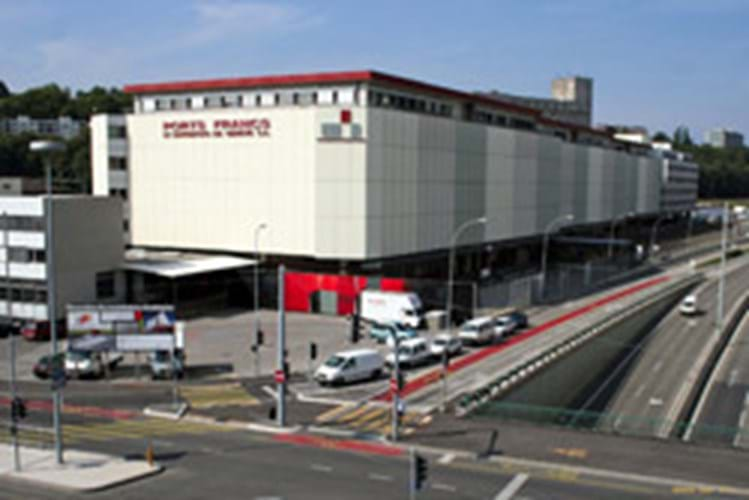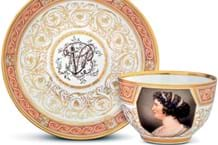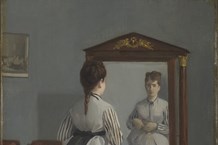
Designed to make Swiss customs laws (dating from 1925) "Euro-compatible", new legislation has been effective since May 2009. The duty-free status of goods stored in warehouses at the Freeport, where billions of pounds' worth of art, wine and jewellery are stored duty-free, is not affected. The main consequences of the law change are as follows:
• The Geneva Freeport is no longer considered an "extra-territorial zone", which means that some on-site services are now subject to Swiss VAT (7.6 per cent). VAT is not applicable to the value of items stored, to storage fees or to insurance premiums.
• All artworks stored at the Freeport must now be recorded by storage companies in an inventory listing each item's description, value, size, date and place of storage, country of origin, and the name and address of "the person with the right of disposal" over it. The inventory must be kept on a computer database in storage companies' offices, and be readily available for inspection by Customs. The information must be kept for five years.
Christian Aegerter, head of Arts-Franc S.A., one of several shipping and storage firms that rent premises at the Freeport, says storage firms always kept their own inventories as a matter of course; the main change is that Customs can now access them.
He ridicules media reports that the change is designed to prevent stolen artworks or illegally excavated antiquities being harboured at the Freeport. But he admits it is "unfortunate" that the law changes were introduced at a time of financial crisis, with Swiss banking secrecy the focus of international opprobrium, and the Freeport's previous "extra-territorial status" confused with Switzerland's reputation as an "off-shore" tax haven.
The Geneva Freeport has existed since 1888, and is run by a company called Ports Francs & Entrepots de Genève SA, in which the Canton of Geneva (regional council) has an 86 per cent stake. It occupies an anonymous-looking 140,000 sq m warehouse complex in a mundane built-up zone a mile south of the city centre. Along with industrial goods, art (and wine) are stored here by several specialist shippers, who rent space and sub-let it to their clients.
All art shippers have stylish showrooms for private viewing. Most of the top-security storage areas are underground, where individual art works, some worth millions, are stored in temperature- and humidity-controlled rooms with concrete walls several feet thick and metal doors weighing up to four tons. (Jewellery is stored at a smaller Freeport zone at Geneva Airport.)
The Geneva Freeport insists that the recent law change has not affected business and, in fact, opened a new office block opposite its main warehouse, complete with extra storage space, only last month.
Meanwhile Yves Bouvier, boss of shipping specialists Natural Le Coultre (another of the Freeport's leading clients) is expanding into Asia, where he will open the Singapore FreePort - touted as "Asia's first high-security facility for art storage" - in December.
Bouvier fiercely denies that he is branching out because he fears Geneva will suffer from the law change - but he happily reports that Singapore legislation for duty-free warehousing is far less stringent, with no need to inventory goods or identify owners.
Nonetheless, he has invested $3m in a scanner to vet all goods entered for storage at the Singapore Freeport, which will concentrate exclusively on art, jewellery, watches and wine in swanky, purpose-built premises featuring LED lighting and an entrance hall designed by Ron Arad.
Christie's have already snapped up a third of the 22,500 sq m space; the rest is destined for five professional shippers (no private clients). A second phase of 24,000 sq m is due to open by 2011.
Bouvier says he chose Singapore as his Asian base (rather than Hong Kong or Dubai) because of its political stability and low crime rate. State support was also a factor: the National Arts Council and National Heritage Board are shareholders in his new company (Singapore FreePort Pte Ltd), and he has obtained a strategic site next to Changi International Airport.
Still, Bouvier has endured a setback in another emerging market. He caught the attention of the art world by launching the Moscow World Fine Art Fair in 2004 but now, after five stagings, has scrapped it and is closing his Moscow office.
• Meanwhile there are plans to establish France's first port-franc in the Paris suburbs. Ironically, the site earmarked is the Ile Séguin (former home to the head Renault factory), where François Pinault planned to build his art museum before he decamped to Venice after complaining of red tape and political foot-dragging. Now regional authorities envisage a Free Port on the island as part of a "Valley of Culture" that would also include a contemporary art exhibition centre. No date for the opening has been announced.
By Simon Hewitt




